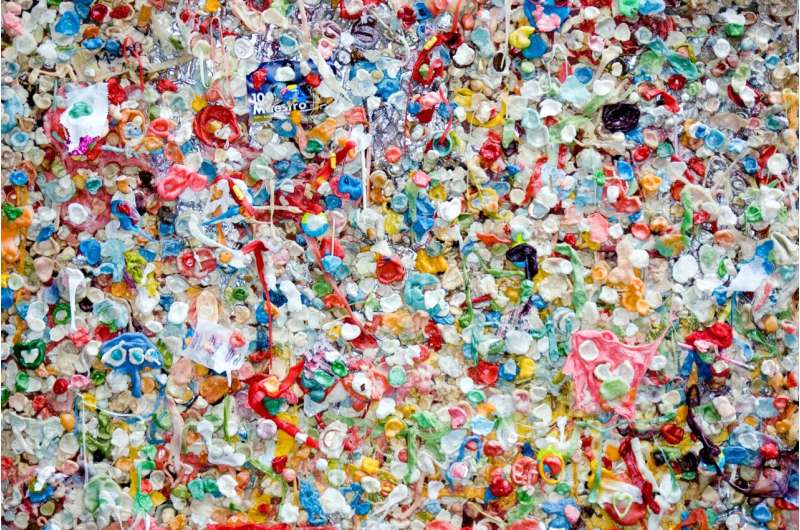
Between 2000 and 2019, annual production of plastics doubled to 460 million tons. It is expected to reach 736 million tons by 2040, according to the Organization for Economic Cooperation and Development.
Very little of the world’s plastic waste—about half of which comes from single-use plastics such as packaging, straws and disposable utensils—is recycled. Just 9% of the 353 million tons of plastic discarded in 2019 was recycled.
That figure is even lower in the U.S., where each person generates an average of 487 pounds of plastic waste each year: Just 4% was recycled in 2019, with the majority incinerated or dumped in landfills.
Because it does not biodegrade, much of the plastic we throw away ends up leaking into the environment as microplastics, tiny particles less than 5 millimeters in size that have been found in water, food and even in human placentas.
Although the effects on human health are just starting to be studied, one study in the New England Journal of Medicine linked microplastics in certain blood vessels to increased risk of cardiovascular disease.
Research suggests that it’s not too late to act.
A paper published in the journal Science found that just four policies could “reduce mismanaged plastic waste by 91% and gross plastic-related greenhouse gas emissions by one third.”
The two most effective: a 40% minimum recycled content mandate for new plastic products, followed by a cap on new plastic production, in addition to a plastic consumption tax and increased investment in waste management systems.
The most intractable questions have also been the most critical: Who will pay for what, and whether the treaty will set mandatory production caps or allow countries to set and abide by their own voluntary targets.
Poorer countries, such as the small island states in the Pacific, are calling for their wealthier counterparts to shoulder a greater share of the financial costs of the waste that is largely produced by developed economies but ends up on their shores.
On the other hand, nations such as Saudi Arabia and Russia, whose economies are dependent on the fossil fuels that provide the ingredients for plastic, oppose mandatory caps on production, arguing instead for a focus on recycling and waste management.
“We reject any proposals that impose undue burden on industries,” Saudi Arabia said in its opening statement Monday, arguing for “recycling solutions rather than imposing rigid and exclusionary policies.”